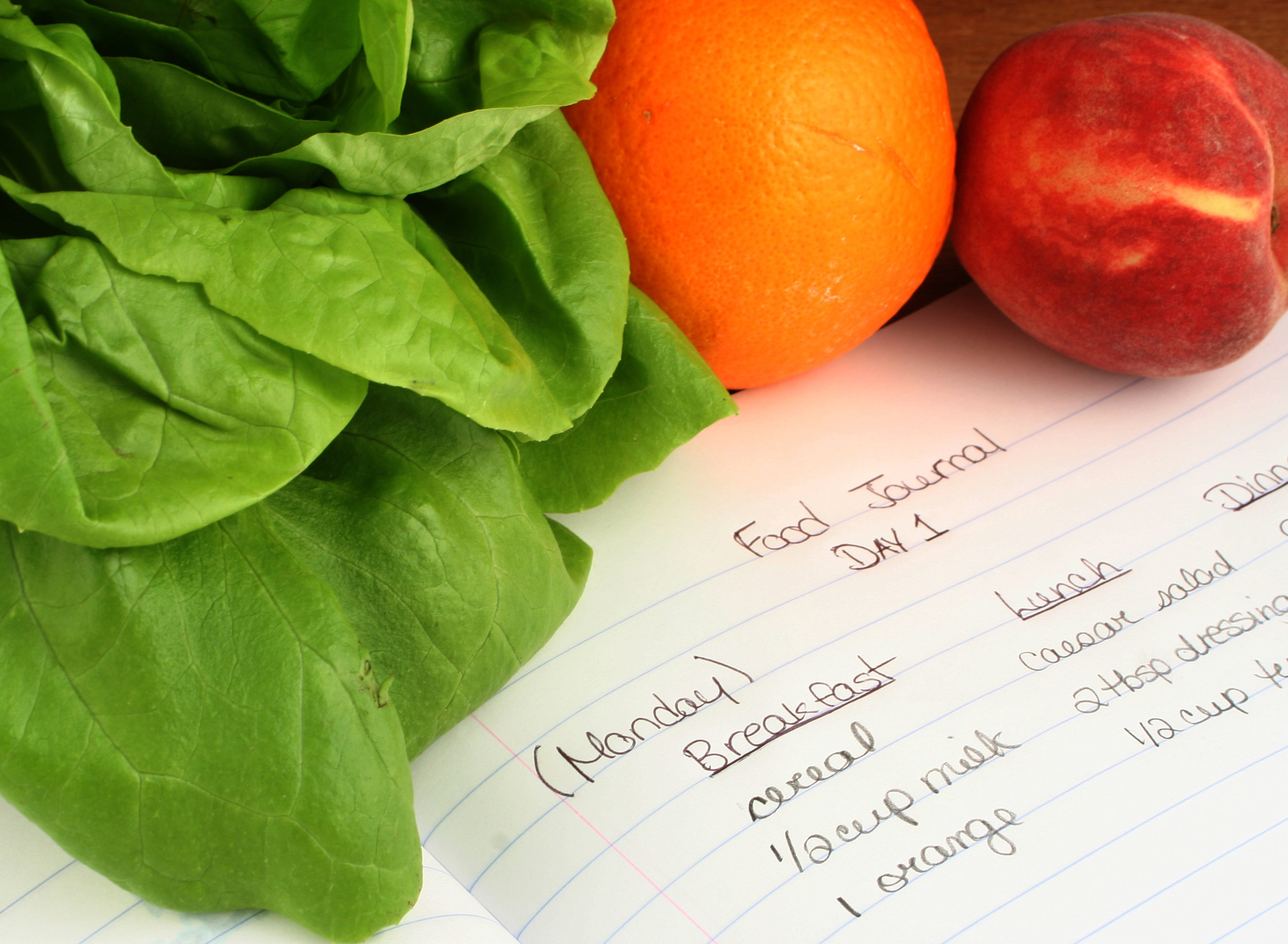Tips for Using a Food Journal for Successful Weight Loss & Healthy Eating
/Either a basic notebook or an electronic app - whatever works for you will work for weight loss.
Coming up with successful strategies to create and stick to a weight loss eating plan or even maintaining a healthy eating pattern is the Holy Grail for many women who struggled with weight all of their lives. I know I did and now I struggle with everything else that life offers. I don’t confuse eating for fuel and energy and vitality with examining my life and feeling my emotions. Dealing with both the amazing gifts and challenges of aging.
If you are like I used to be, you may still be seeking one answer to magically change you. One magic pill to make changing easy.
Ladies, the answer is in your brain. No magic pill. The magic is that you can use innovative approaches to take new action.
Learning new skills is what it takes to do something in a new way. Learning is something you can do. You have done it your whole life.
Luckily learning the skills of healthy eating is going to take you into your 60s, 70s and beyond in much better stead. If you ride the status quo, you are influenced by visions of food bombarded at you through advertising. Beautiful food that will please you, be your friend, satisfy you and even replace your lover! At your age, don't be taken in by the lengths advertisers will go to to get you to desire their unhealthy food!
The beautiful thing I am learning about the science of healthy eating, is that pretty much all of what we need to do to lose weight are the combinations of actions and activities that will get us successful weight loss, strong bones and healthy brains.
And what is magic to me is that as we learn these skills, we benefit from the act of learning and we broaden our capacity to learn. In other words, creating good habits results in your ability to keep creating better habits.
Keeping a food journal is one of the skills that, if you learn to rely on it, will support your weight loss goals. The most successful people who win at weight loss and attain life goals have been observed in research studies and keeping a food journal has been proven to guide you to success.
Purpose of a Food Journal.
If you remember that the purpose of using a food journal is to lose weight and keep it off, you might make more of an effort to learn how to rely on one.
What makes up a food diary or journal?
Two critical factors are involved in food journaling:
1. A place to record what and how much you plan to eat.
2. A place to keep track of what, when, how much you have eaten.
There are many approaches to keeping a food journal, but every successful approach includes both the place to record your plan and a place to record what you actually put into your body.
In addition, here are some other things to track to become aware of what drives or motivates you to stay on track and what happens to kick you off track.
3. Keep track of how you feel before and after you eat. Often, we eat because of emotional upsets or boredom. Keeping track of your feelings and your level of hunger when you eat will open up your internal processes that take place from your unconscious brain. Self-awareness is education!
4. Keep track of your specific goal and WHY you want to reach it. We need strong motivation to change habits as the nature of changing a habit is stepping out of our comfort zone into the discomfort of something unfamiliar.
When you write down your goal and make it very specific and spend time thinking and writing about why you want to achieve it, those thoughts can rekindle your emotional motivation to make the changes you need to choose eating differently.
Remembering that your thoughts create your feelings and your feelings give you the motivation to do or not do something; and finally, those actions are what give you results.
Why does it work?
Researchers speculate that the success of using a food journal in sustained weight loss comes from awareness and accountability. Often, we are not aware of how much we eat and writing it down gives us a way to evaluate the quantity or portion sizes. When we write it down we become accountable to ourselves; if we share our food journal with a coach, trainer, or partner, we have another level of accountability. Sometimes just not wanting to write something down will change your desire for eating a particular food.
Using your imagination to visualize yourself eating the meal you are planning, will also strengthen your chances for success.
Changing Habits is Key to Success
When you are working at changing old habits of overeating, using a food journal takes advantage of your brain’s design to support you in this process. Using a food journal engages your pre-frontal cortex (PFC), your mental CEO, the executive of your brain and your life. Your PFC is great at planning, executing on a plan and understanding that what you do immediately will have a long-term impact on you in the future.
If you are often standing in front of the fridge at the end of the day wondering, “What do I feel like eating?” you are not using your PFC but your limbic brain that cannot imagine the future, and only seeks immediate gratification. This part of your brain is likely running things for quite some time and remember neurons that wire together fire together. The more you practice not using your PFC, the stronger that habit will become. Without learning new skills, living from your unconscious will likely doom any chance you have at achieving your weight loss and health goals.
Remember in order to be successful in writing down your food, you have to have the food in your home, ready to be cooked or already cooked. You can read about 8 Steps to Simplify Food Planning at this link.
5 Easy Tips for Successfully Using A Food Journal.
1. Decide what kind of journal/diary works with your lifestyle and personality.
If you keep pads of paper in the kitchen, you may want to write your food plan for the next day right there. You can keep a small notebook in your purse to track your food real time in the beginning. Maybe you want to use the notes section on your phone or a food app, like myfittnesspal. Decide what works for you.
2. Decide How often you will write.
When do you plan your food? Before bed; after dinner? You want to commit to a time of day that you will track what you are eating.
3. Decide what you will track.
If you love creating excel spreadsheets and keeping many data points to track, you can decide what you want to track.
Here are my recommendations for what to track:
A. Your overall food protocol. What you have decided you will eat in order to lose weight; how much and when you will eat it. Write it down. Make it satisfying and sustainable.
B. Your meal plan for the next 24 hours, including breakfast, lunch and dinner. This is what your PFC has planned for you to eat to lose weight and not be hungry all the time.
C. How much and what time you actually eat. Don’t forget to record any snacks or beverages. Even what you consider healthy snacks (e.g., carrot sticks) are recorded.
Additional things to track to understand and change your emotional eating patterns:
D. How hungry were you before and after you ate?
E. Record stressful or emotional moments that came up in your day. How did you handle these situations?
F. Any surprises you may have learned.
4. Be consistent. Write down your food every day.
5. Review your success against your journal.
If you are successfully losing weight each week, keep doing what you are doing. Remember your weight will naturally fluctuate up to 3#s from day to day and you want to accumulate at least 2 to 6 weeks of food journaling to determine if your plan is working.
If your plan is not getting you the results you want after 2 to 4 weeks, review and tweak your plan with your coach or trainer.
Ladies, at any age, changing habits created over years with tons of practice will take time and patience as you learn new skills. Using a journal is a new skill – use it to notice what you are eating, how you react to your weight fluctuations, your hunger, your emotions. Your thoughts about each success and misstep will provide you with a rich understanding of your humanity and your ability to become the person you want to be.
Remember you are choosing a healthy lifestyle so you will have the energy and vitality to live your life. That's what it's all about.
Pat Beaupre Becker is a Master Certified Weight and Life Coach. She coaches women over 50 who have struggled with overeating for most of their lives. She teaches them how to lose weight, stop overeating emotionally and learn to love their life today and create excitement about their future. She is absolutely sure It’s never too late to lose weight.
Listen in to her weekly podcast, It’s Never To Late To Lose Weight on iTunes, Stitcher or wherever you listen to your favorite podcasts.


